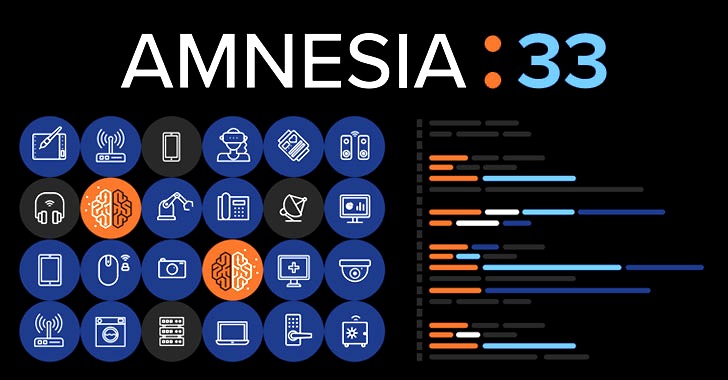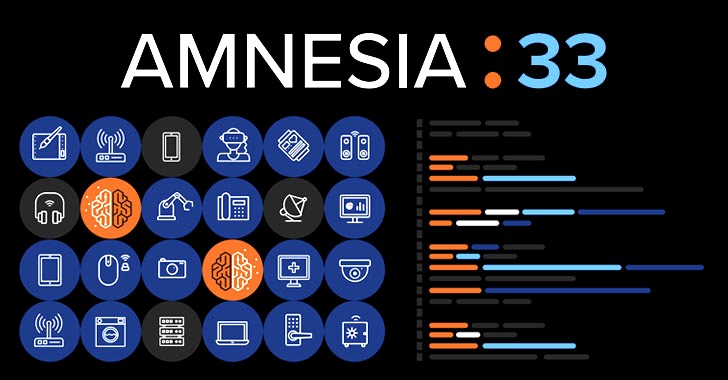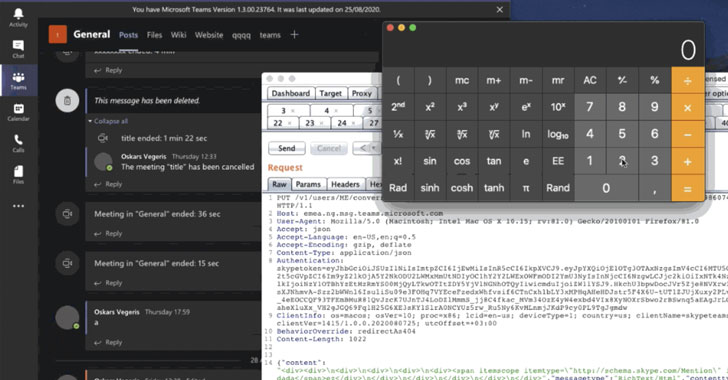

Cybersecurity researchers disclosed a dozen new flaws in multiple widely-used embedded TCP/IP stacks impacting millions of devices ranging from networking equipment and medical devices to industrial control systems that could be exploited by an attacker to take control of a vulnerable system.
Collectively called “AMNESIA:33” by Forescout researchers, it is a set of 33 vulnerabilities that impact four open-source TCP/IP protocol stacks — uIP, FNET, picoTCP, and Nut/Net — that are commonly used in Internet-of-Things (IoT) and embedded devices.
As a consequence of improper memory management, successful exploitation of these flaws could cause memory corruption, allowing attackers to compromise devices, execute malicious code, performing denial-of-service (DoS) attacks, steal sensitive information, and even poison DNS cache.
In the real world, these attacks could play out in various ways: disrupting the functioning of a power station to result in a blackout or taking smoke alarm and temperature monitor systems offline by using any of the DoS vulnerabilities.
The flaws, which will be detailed today at the Black Hat Europe Security Conference, were discovered as part of…
http://feedproxy.google.com/~r/TheHackersNews/~3/mWCnKpBPpuQ/amnesia33-critical-tcpip-flaws-affect.html











